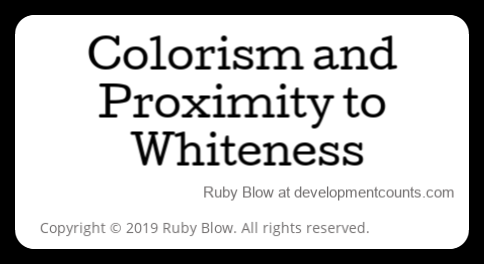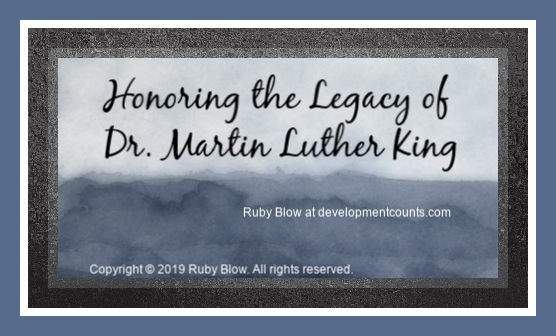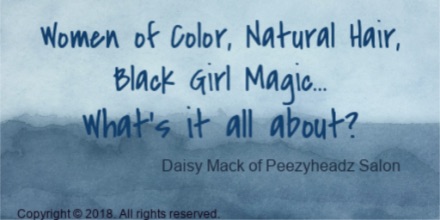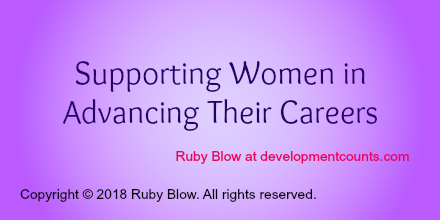Offense is Common
Sometimes interactions with others leave us feeling hurt, confused, lonely or misunderstood. Often we are offended and the other person or people have no idea why. I wish the opposite were true – that most of us felt understood by others. But I know that for many people who are rightly or wrongly classified as minorities (women, people of color etc…), offense is common….and it is a life’s work to seek refuge from the storm that ebbs but mostly flows.
The “Successful” Minority
I live and work in Metro Atlanta. In Atlanta there are great many minority and women professionals. So naturally there are many women of color (of varying hues) who are professionals:
- Attorneys
- Doctors
- Educators
- Psychotherapists
- Business Owners, etc…
This particular experience is challenging for a multitude of reasons. One of them being that when people perceive you as successful, they are even more likely to discount your stories and experiences of microaggressions, systemic racism and interpersonal aggression based on race and gender.
Primarily because their ideas about the results of racism mean being “at risk, poor or down-trodden and even unattractive” or different than what they experience of their minority colleagues, providers or clients. Successful people experience the results of racism regularly and it is also lived out in the experiences handed down in the generations of their families.
Pain is Handed Down Like Any Other Inheritance
Pain is handed down, inherited etc… Practices, beliefs, mindsets and ideology that make one question whether their worth or value will be acknowledged can lead to over achievement, over work, over debt, over struggle, rugged individualism and isolation (i.e. being strong). This is particularly problematic for people who are, at their heart and core, from collectivist cultures. We need one another…or we will die in the metaphorical field toiling and carrying the load alone.
The above described “successful” minority experiences marginalization often and learns over time who, where and when they can discuss it. Prior to going underground with one’s concerns, they typically attempt to address the problem directly with colleagues, clients or peers.
- The hope is that the receiver of that information will listen.
- The hope is that even if they don’t get it or if they are offended, that they will try to stick with the concern being addressed and make it better.
Systemic Failures are Systemic Opportunities
In all of my consultation with colleagues on these matters, I have never known of a system, person or agency that tried to fix or address the harmful policy or practice within their system or within themselves.
In my direct experiences and observations of others…a whole process can be set up in a way that doesn’t take into account the needs of a minority therapist, client or leader. And when that person speaks about their concern, they are often met with disbelief and/or debate about the necessity of their request or assertion. The prevailing beliefs being
- “Your presence means there is no problem.”
- The undertone is “You’ve been allowed here…why are you so ungrateful?”
- “Why do you focus on the negative?” or “Why are you so fragile?” or “Why do you act like a victim?”
After a few of these experiences, most minorities will go silent and most don’t want to be further on the outside of the peers looking in. Most don’t want to be considered a problem or trouble. They lose an aspect of their “self.” Their lived experience is shut down. They begin to question “Are they right…am I making this up?” But the emotional pain and eventual physical cost is real. The truth about health disparities isn’t only about a difference in access and treatment (although that exists). Health disparities flourish because of the repetitive stress endured by minorities and how that stress exacerbates and even causes persistent ill-health, lowered maternal and infant mortality and so on.
One of My “Lived Experiences”
For the purpose of this discussion, a “lived experience” involves an experience that can’t technically be proved or disproved but is evident to the individual experiencing it. A common theme among people who deny other’s lived experience is a focus on logic or evidence. The idea being-
- if I didn’t see it,
- if I can’t observe it,
- better yet, if I didn’t experience it myself…then it’s probably not real.
Years ago I worked in a residential facility for financially wealthy clients as their couples and family specialist. One day I came in to specifically work with a woman whose family name everyone in this country and most of the world would recognize. When I entered her session room, she jumped off of the couch. It was obvious that she was afraid and when she spoke she confirmed why she was fearful. I don’t recall the exact words but she essentially said “What are you doing in here? No one told me You would be my couples therapist.”
I understood what “You” meant. “You” meant a black person/woman or worse a “N.” Some of you reading this may already be thinking “Well, how do you know that’s what she meant?” To you, I say that reaction to when a person shares their experience of marginalization is part of the problem. That is the definition of adding to the offense and becoming complicit with the person or persons generating the injury. But I digress…I will come back to that sentiment and why is problematic no matter the race or minority identity of the person harboring that thought. That thought being “Maybe she didn’t mean it the way you think.” You are part of the problem not the solution.
The client who jumped of the couch went on to say…“My husband wouldn’t be comfortable working with you.” I tried to focus on her fear and to detach from my own embarrassment. I was embarrassed even though I didn’t do anything wrong.
Exposed and Dehumanized
I was exposed for being devalued, unwanted, unworthy of respect…I was less than human and something (not someone) to be feared. It was dehumanizing… I had done something wrong by walking into the room. I had done something wrong by existing. This is at the heart of what being a marginalized person feels like.
So even though I don’t accept that perception of me, I know that it exists. She made the elephant in the room plain. Her shock and disgust actually sent her fleeing from the room to go outdoors for a cigarette. Meanwhile, I offered to give her an opportunity to adjust to the shock of my being there so we could discuss next steps. I said I’d wait 10 minutes and then leave under the assumption she wasn’t willing to try. Suffice it to say, she did not return.
This story is a more obvious one. Most people can read it and go “Oh there is the offense,” “There is the racism…you are right and she is wrong.” But most of mine and others’ experiences of racism are not confirmed by the person causing the offense. Most of the time the person causing the offense doesn’t recognize it as an offense at all. Instead their reaction is to be hurt and offended themselves at the mere suggestion that something they supported, created or said is harmful or racist. The whole interaction becomes about defending themselves; as if being called out for the impact their behavior, action or inaction had on someone else is more important than the harm caused.
Being Multiculturally Effective for Those of the Majority Culture (white)
When a minority person shares with you an experience of marginalization, that moment is in fact sacred. They are entrusting you with their most private and painful experience and they are hoping that you will care. Interacting with others involves risking being misunderstood for the reward of possibly connecting. This is true in all relationships whether they be personal or professional.
Being multi-culturally effective goes both ways. If, as a minority, I share an experience with someone who is of the majority and it is evident that there is a big gap in their understanding of my concern, I actively moderate myself and slow down.
I have to recognize in that moment whether or not the person I am sharing with can meet me where I am. The truth is that most minorities who are professionals or successful in whatever arena of work and life…are very equipped in meeting people who are not aware of their own privilege or racism where they are.
The challenge for you is to reduce any knee jerk reaction to deny or defend or state that you are offended or hurt and listen. Then listen some more and listen some more and then ask what you can do and try to be a part of that solution.
The Multiculturally Effective Minority
The minority person is best served in recognizing that there are some people in the majority culture (i.e. white people) who are very capable and willing to understand, explore, discuss and be allies to minorities. This was true of the Civil Rights Movement in the 1950’s and 1960’s and it is true in the modern civil rights movement(s).
However, there are many more in the majority who cannot meet you where you are. In particular, the minority therapist in their role as therapist, colleague, supervisor, and/or director has to determine if they/we are able to meet this person (who has a limited, shallow or non-existent understanding of their privileged status, institutional racism etc…) where they are. This is my process for meeting a person in a professional relationship where they are: if they hold problematic and harmful beliefs that cause harm to me and/or my community directly, then I recognize where they are in their life/soul development.
In a therapeutic relationship, I describe it as working with an “old soul” vs a “new soul.” A new soul stays closer to the surface of things. They choose to keep things simple. They understand absolutes and struggle with the in between spaces. A new soul demonstrates this in all of their interactions, not only in challenging dialogues about race or inequality, and not only in circumstances where their practices are challenged. A new soul must be met on the surface of things where they are. We must, for our own well being, release the need or desire to have them fully understand and to some degree accept their limitations. The more you pull, the more they tug. Instead, seek out the old souls for support, refuge, understanding and change.
By comparison, an old soul goes deeper. They go beneath the surface of things. We must be prepared to meet them as well. An old soul may have a more nuanced understanding of the systemic nature of oppression and marginalization. They understand their role in the nature of things and struggle with how to make things better. I have a few white therapy clients and colleagues like this. They are a welcome relief. They are a reminder that while there are many people who don’t understand and don’t care to understand, there are those who do get it. There are those old souls who are dead set on making the world a more just, fair and safer place for everyone.
Depersonalize the Offense -a “Survive to Thrive” Method for All
As therapists, we train ourselves to meet people where they are and depersonalize their harmful interpersonal interactions because it’s “not about us…it’s about them.” We learn to recognize the “offense” but not take offense. Instead examine what the behavior of emotion is there to tell us so that we might engage in ways that preserve our well-being and that of the client relationship, peer relationship or institutional relationship.
Copyright © 2018 Ruby Blow. All rights reserved.
Share your thoughts on Linkedin, Facebook, Twitter or log in to one of your accounts below to comment. Subscribe to my YouTube channel.





